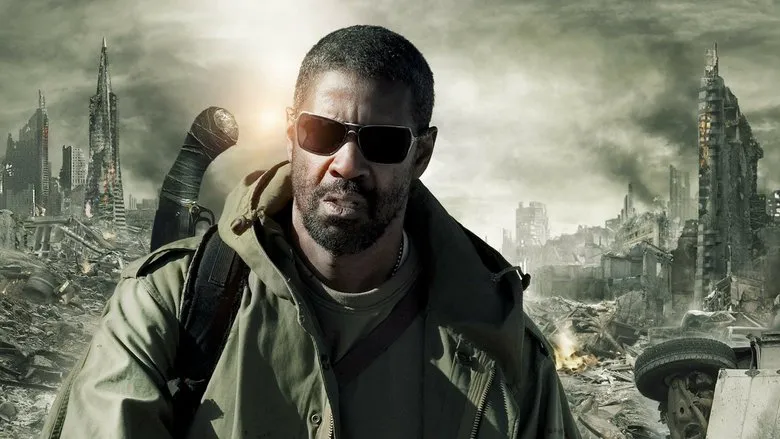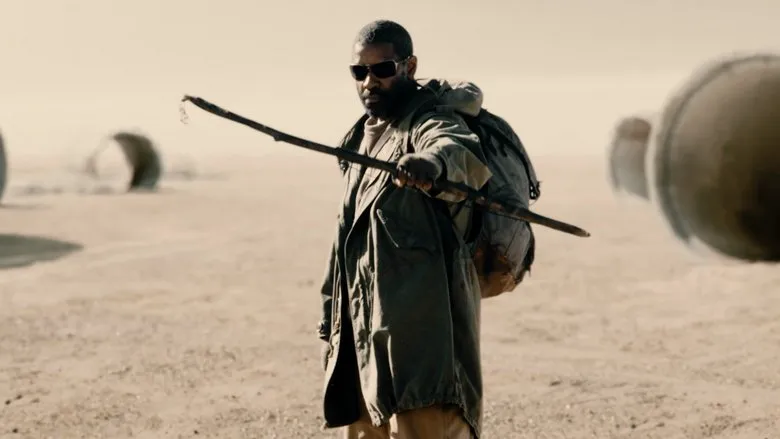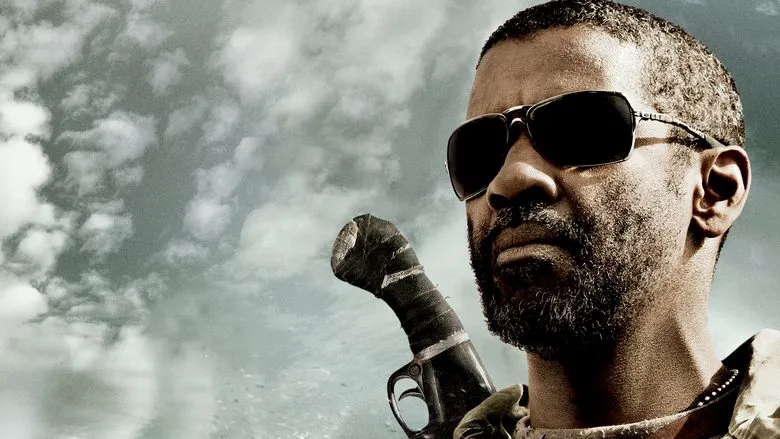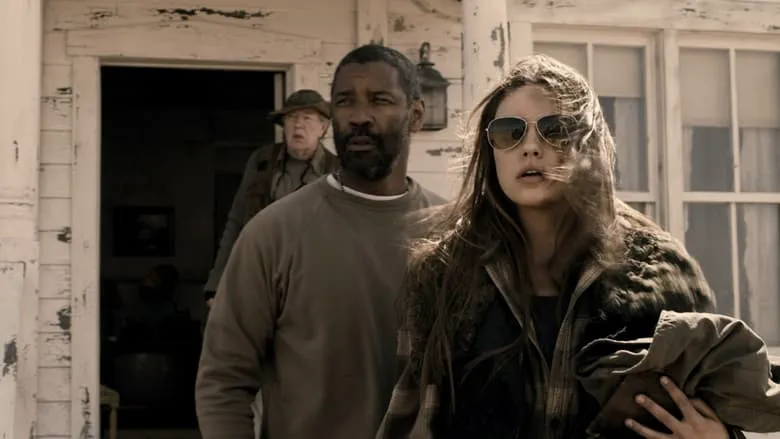The Book of Eli: A Post-Apocalyptic Western Where Faith Meets Firepower

In a landscape ravaged by nuclear apocalypse, Eli (Denzel Washington) treads a solitary path. He’s a man of few words, armed with a machete and a sawed-off shotgun, navigating the desolate terrain with unwavering purpose. He pauses only to hunt for sustenance or to defend the innocent from marauding bandits. Eli carries with him a precious cargo: a book, simply referred to as “The Book.” Its true identity is thinly veiled, and those who mistake it for a mere record of achievements are sorely mistaken. This book is coveted by Carnegie (Gary Oldman), the tyrannical ruler of a nearby town, who seeks to exploit its power for his own gain. As Eli crosses paths with Carnegie, a battle of wills ensues, fought with bullets and bloodshed, to determine the fate of the book and whether it will serve Carnegie’s ambitions or continue its journey westward with Eli, a journey spanning three decades.

It’s rare to offer such a recommendation, but “The Book of Eli” is a film worth watching. While not a cinematic masterpiece, and despite some familiar post-apocalyptic tropes, the film possesses a unique vision. The Hughes brothers, who previously directed “From Hell,” may not be visionary directors, and the film does suffer from the cliché of villainous, grimy bikers clad in scrap metal armor. Furthermore, the underutilization of Gary Oldman’s talent is a source of frustration.

A Visionary Flawed, But Compelling
However, these shortcomings are forgivable. The Hughes brothers seem to belong to a category of filmmakers whose talent struggles to fully realize their visions. It’s as if they dreamt of Eli, an invulnerable, taciturn figure traversing a ruined world with a book, an unstoppable force. This world is painted in shades of gray and rusty ochre, adorned with ruins, blinding sunlight, and Eli’s trusty old iPod. They were captivated by the words, “Yea, though I walk through the valley of the shadow of death, I will fear no evil: for thou art with me.” They delved into the essence of Eli’s book, ultimately understanding its significance and crafting a finale that justifies the entire cinematic endeavor. The bikers, however, seem out of place in this vision, borrowed from “Mad Max” and seasoned with elements of “The Good, the Bad and the Ugly,” complete with cinematic nods to ensure the audience doesn’t take it all too seriously.

Faith, Firepower, and a Dash of Grand Theft Auto
The result is a peculiar blend: arguably the most compelling film about faith since “The Passion of the Christ,” coupled with what might be Denzel Washington’s finest performance since “Man on Fire,” all wrapped in a package reminiscent of Grand Theft Auto. One could endlessly dissect “The Book of Eli,” questioning the plausibility of a 30-year journey across America, the fleeting appearance of Tom Waits, the persistence of fishnet stockings in a post-apocalyptic world, and the obligatory saloon and scorned lover of the main villain in this neo-western setting.